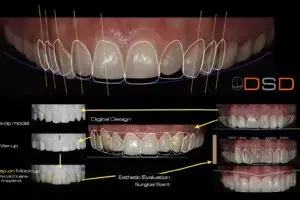Avoiding a root canal is often high on the list of priorities for many patients. At Najmi Dental, we believe that prevention is the key to maintaining healthy teeth and gums, and it starts with understanding the causes and taking proactive measures. Here’s how you can minimise the risk of needing a root canal:
1. Practise Rigorous Oral Hygiene
A fundamental step in preventing a root canal is maintaining a high standard of oral hygiene. This includes:
- Brushing Twice Daily: Use fluoride toothpaste and a soft-bristled toothbrush to clean all surfaces of your teeth, focusing on hard-to-reach areas.
- Flossing Daily: Flossing removes plaque and food particles from between the teeth and along the gum line where a toothbrush cannot reach.
- Using Antibacterial Mouthwash: An antibacterial mouthwash can help reduce the amount of harmful bacteria in your mouth, further protecting against tooth decay and gum disease.
By adhering to a strict oral hygiene routine, you can prevent the build-up of plaque, a leading cause of cavities that can lead to root canal treatment.
2. Schedule Regular Dental Check-Ups
Regular visits to your dentist are crucial in identifying early signs of dental problems before they require more invasive treatment. At Najmi Dental, we recommend:
- Biannual Check-Ups: These appointments allow us to perform professional cleanings and thorough examinations to detect early signs of decay or infection.
- X-Rays and Diagnostic Tests: Routine x-rays can reveal hidden issues below the gum line or in areas not visible to the naked eye, ensuring comprehensive care.
Early detection and treatment of dental issues can prevent them from progressing to the point where a root canal becomes necessary. Learn more about the importance of regular dental check-ups.
3. Maintain a Tooth-Friendly Diet
Your diet significantly impacts your oral health. To avoid the need for a root canal, consider:
- Limiting Sugary and Acidic Foods: Foods and drinks high in sugar and acid can erode tooth enamel and promote cavities.
- Eating Nutrient-Rich Foods: A balanced diet rich in vitamins and minerals supports strong teeth and gums. Include plenty of fruits, vegetables, whole grains, and dairy products in your meals.
By making healthier food choices, you can help protect your teeth from decay that could lead to root canal treatment. Explore more tips for healthy teeth.
4. Address Dental Issues Promptly
Ignoring dental pain or sensitivity can lead to more severe issues. Prompt attention to dental problems is essential. Be vigilant about:
- Tooth Pain and Sensitivity: These symptoms can indicate decay or infection. Seek dental care immediately if you experience persistent discomfort.
- Swelling or Gum Pain: Swollen gums or pain around a tooth could signal an underlying infection.
Timely intervention can prevent the need for more extensive treatment, such as a root canal. Read more about when to see a dentist for tooth pain (Link to future blog on dental pain management).
5. Protect Your Teeth from Injury
Dental trauma can lead to the need for a root canal. To protect your teeth:
- Wear a Mouthguard: If you play contact sports or engage in activities with a risk of facial injury, a mouthguard can prevent fractures or dislodged teeth.
- Avoid Using Teeth as Tools: Using your teeth to open packages or bite down on hard objects can lead to cracks and breaks.
Preventing dental injuries is an effective way to reduce the likelihood of requiring a root canal. Discover more ways to protect your teeth (Link to future blog on dental protection tips).
6. Consider Preventive Treatments
Preventive dental treatments can offer additional protection against tooth decay:
- Dental Sealants: A sealant is a protective coating applied to the chewing surfaces of the back teeth, where decay often begins.
- Fluoride Treatments: Fluoride strengthens tooth enamel, making it more resistant to decay.
Discuss these options with your dentist at Najmi Dental during your next visit to explore how they can benefit your oral health.
Conclusion
At Najmi Dental, we are committed to helping you maintain optimal oral health and avoid invasive treatments whenever possible. By following these proactive steps, you can significantly reduce your risk of needing a root canal.
If you are already facing the possibility of a root canal, it’s important to know that the procedure is designed to save your tooth and alleviate pain. Learn more about whether you need a crown after a root canal.


